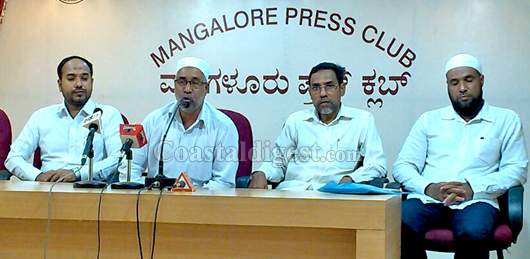
Mangalore, Sep 10: The 20th Urs celebration of the historically famous Dargah Shariff of Hazrat Seyyid Mohammed Shareeful Madani will be held for 25 days from April 2 to April 26, said president of the Dargah U S Hamza.
Announcing this at a press conference here, he said that the historically famous Urs fair was held once every five years at the Dargah Shariff at Ullal. Devotees from all over the state, as well as Kerala, Tamil Nadu, Andhra Pradesh and North India arrive to witness and be a part of the glorious celebrations, he said.
This will be the 20th Urs celebrations to be held at the dargah for the duration of 25 days. The flag hoisting ceremony was held on September 5. The Urs will begin with the monthly Zikr and every night there will be special sermons by noted Ulama scholars, he said.
He said that around 20 to 30 lakh devotees from various parts of the country were expected to participate in the Urs celebrations.
There will be monthly Zikr Majlees programme on the inaugural day, and several programmes during the duration of the Uroos including the valedictory ceremony of the Urs on April 23, he added.







Comments
Coming uroos date?
Add new comment